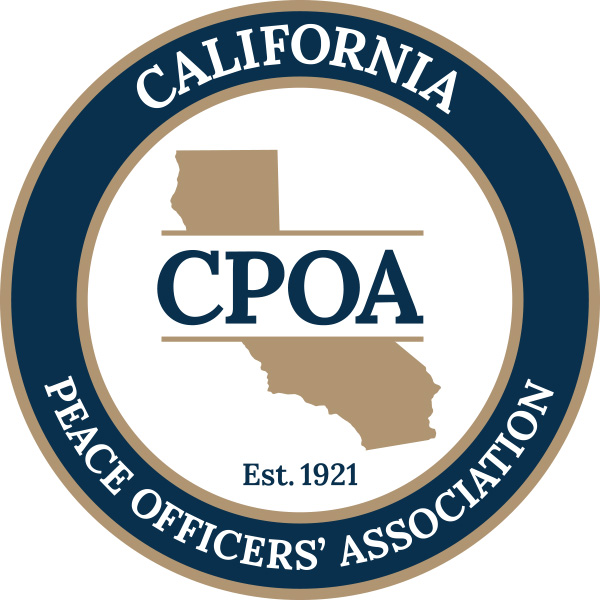Provided by James R. Touchstone Esq
In People v. Raybon,[1] the California Supreme Court concluded that possession of cannabis in prison remains a violation of Penal Code section 4573.6, even after Proposition 64 generally legalized adult possession of up to 28.5 grams of cannabis, subject to certain exceptions.
Background
Penal Code section 4573.6 makes it a felony to possess a controlled substance in a state correctional facility. The five defendants in this case were each found in possession of less than 28.5 grams of cannabis (approximately one ounce) in a state prison and were subsequently convicted of violating Section 4573.6. Most of the defendants were serving time for a prior serious or violent felony at the time of their possession offenses, resulting in second-strike sentences that added several years to their current term.
In November 2016, the voters passed Proposition 64, the Control, Regulate and Tax Adult Use of Marijuana Act (the “Act”). Proposition 64 makes it lawful for persons aged 21 years and older to engage in various types of conduct involving cannabis, including the possession of up to 28.5 grams of cannabis, subject to certain exceptions. (See Health & Safety Code section 11362.1(a).) The initiative also includes a remedial provision that allows persons currently serving a sentence for a cannabis-related crime that is no longer an offense under Proposition 64 to file a petition requesting the dismissal of their sentence.[2] The defendants filed petitions in the Sacramento County Superior Court arguing that their sentences for violating Penal Code section 4573.6 should be dismissed because adult possession of less than an ounce of cannabis in prison no longer qualifies as a crime.
The trial court issued orders denying the petitions, concluding that Penal Code section 4573.6 falls within an exception set forth in Health and Safety Code section 11362.45, subdivision (d) stating that Proposition 64 has no effect on laws “pertaining to smoking or ingesting cannabis or cannabis products” in state correctional facilities. (Section 11362.45(d).) The defendants appealed to the Third District Court of Appeal and their cases were consolidated.
While the appeal to the Third District was pending, the First District issued People v. Perry,[3] which held that “Proposition 64 did not affect existing prohibitions against the possession of marijuana in prison or otherwise affect the operation of Penal Code section 4573.6.”[4] Like the trial court in this case, the First District concluded that the phrase “‘[l]aws pertaining to smoking or ingesting cannabis [in prison]’” implicitly extends to possession under Penal Code section 4573.6 because the possession of cannabis is directly related to smoking or ingesting the substance.[5]
The Third District disagreed with Perry and held that the phrase “pertaining to smoking and ingesting” was not “intend[ed] to include a third distinct activity, possession.”[6] The Third District further held that the clear and unambiguous intent of the phrase “pertaining to” was “to describe the . . . means of [cannabis] consumption” that do “not strictly involv[e] smoking or ingesting, such as inhal[ing] as a non-burning vapor or appl[ying] topically such that it is absorbed through the skin.”[7] Having found the “conduct underlying [defendants’] convictions is no longer criminal under Penal Code section 4573.6,” the Third District directed the lower court to enter orders granting the petitions for relief.
The Attorney General filed a petition for review to the Supreme Court of California. During the pendency of the Supreme Court’s review, the Fourth and Sixth Districts issued published decisions rejecting the Third District’s decision and agreeing with Perry’s conclusion that Proposition 64 was not intended to affect laws criminalizing the possession of cannabis in prison. The Supreme Court granted review in those matters and deferred further action pending its resolution of the case here.[8]
Discussion
The Attorney General’s petition for review to the California Supreme Court sought resolution of the question: “Did Proposition 64, which generally legalized the simple possession of less than an ounce of cannabis, also legalize such possession in state prisons and other custodial institutions?”
The Court noted that Division 10 of the Health and Safety Code comprises the California Uniform Controlled Substances Act. (Section 11000 et seq.) Chapter 2 of the act contains schedules listing the controlled substances that are subject to the provisions of division 10, which includes cannabis. Chapter 6 of the act describes offenses associated with controlled substances, and article 2 (Section 11357 et seq.) sets forth offenses related to cannabis. Prior to Proposition 64, Section 11357 made it a crime to possess nonmedical cannabis and set forth the applicable punishments for such conduct.[9]
Penal Code section 4573 et seq. “place restrictions on possessing and importing drugs and other contraband in custody.” (People v. Low (2010) 49 Cal.4th 372, 382.) Penal Code section 4573.6 makes it a felony to knowingly “possess[] in any state prison, . . . or in any county . . . or city jail, . . . any controlled substances, the possession of which is prohibited by Division 10 . . . of the Health and Safety Code . . . , without being authorized to so possess . . . by the rules of the Department of Corrections, [the] rules of [the correctional facility] or by the specific authorization of the [persons in charge of the facility] . . . .” (Section 4573.6(a).) The Court explained that because this offense is a felony, persons convicted under Penal Code section 4573.6 who have previously been convicted of a serious or violent felony will have their sentence doubled unless the trial court elects to remove the prior strike.[10]
Penal Code section 4573.8 makes it a felony offense to possess “in any state prison . . . drugs in any manner . . . or alcoholic beverages, without being authorized to [so] possess the same by [the] rules of the [prison].” Other similar provisions prohibit bringing controlled substances and other forms of drugs into prisons or causing such substances to be brought into prisons. (See Penal Code, sections 4573, 4573.5.)
The Supreme Court explained that these statutes, which target the possession rather than the consumption of unauthorized drugs in prison, “flow from the assumption that drugs . . . and other contraband promote disruptive and violent acts in custody, including gang involvement in the drug trade. Hence, these provisions are viewed as ‘“prophylactic”’ measures that attack the ‘“very presence”’ of such items in the penal system.” (Low, supra, 49 Cal.4th at p. 388.) The Court added that there is no law that criminalizes the actual consumption of drugs in a custodial setting.
The Court next discussed Proposition 64 and its implemented provisions. In addition to regulating the production and sale of nonmedical cannabis, Proposition 64 was intended to “[p]ermit adults 21 years and older to use, possess, purchase and grow nonmedical marijuana within defined limits . . . as set forth in [the Act].”[11] Although Proposition 64 generally legalizes adult possession of cannabis, it contains several exceptions. Section 11362.45, added by Proposition 64, describes various categories of laws and rules the Act does not affect or restrict. Significant here, subdivision (d) of the Section provides: “Section 11362.1 does not amend, repeal, affect, restrict, or preempt . . . [¶] . . . [¶] (d) Laws pertaining to smoking or ingesting cannabis or cannabis products on the grounds of, or within, any facility or institution under the jurisdiction of the Department of Corrections and Rehabilitation or the Division of Juvenile Justice, or on the grounds of, or within, any other facility or institution referenced in Section 4573 of the Penal Code.” (Section 11362.45(d).)
The Attorney General contended that this exception applies to violations of Penal Code section 4573.6 because the statute qualifies as a “[l]aw[] pertaining to smoking or ingesting cannabis” within the meaning of Section 11362.45(d), meaning that possession of cannabis in a correctional facility remains a felony. Defendants argued that because the exception only refers to “[l]aws pertaining to smoking or ingesting cannabis,” Section 11362.45(d) only exempts laws involving the (in the defendants’ phrasing) “consumption” of marijuana in prison, and therefore does not extend to possession offenses.
The Supreme Court stated that on its face, the phrase “laws pertaining to smoking or ingesting cannabis” was broad enough to encompass statutes that prohibit the possession of cannabis. The Court explained that in interpreting a statute, courts generally “accord words their usual, ordinary, and common sense meaning.” (In re Rojas (1979) 23 Cal.3d 152, 155.) After consulting various dictionary definitions of the word “pertain,” the Court determined that “[a]ll of these definitions demonstrate that ‘pertaining to’ has a definition similar to the phrase ‘relating to.’ The phrase is plainly meant to refer to a relation between two things rather than an exact correspondence.”[12] The Court thus concluded that the text of Section 11362.45(d) indicated the drafters of Proposition 64 did not intend the statute to encompass only laws that explicitly regulate ingesting or smoking cannabis in prison, but rather intended it to include laws that relate to smoking or ingesting cannabis in prison.
The Court considered it obvious that laws barring possession of cannabis in prison relate to drug use because the act of possessing cannabis and the act of using cannabis have an obvious relation insofar as a person must possess cannabis to smoke or ingest it. Taking another angle, the Court agreed with Perry that “[w]e would be hard pressed to conclude that possession of cannabis is unrelated to smoking or ingesting the substance.”[13]
The Court stated that through the adoption of Penal Code section 4573 et seq., the Legislature sought to eliminate drug use in prison by targeting the possession of those illicit substances – which meant that the Penal Code’s prohibitions on drug possession in prison directly pertain to drug use. The Court added that, unlike subdivision (d), several of Section 11362.45’s other subdivisions use the terms “laws prohibiting” or “laws making it unlawful” when describing the categories of statutes that Proposition 64 does not amend or affect.[14] The Court observed that if the drafters intended to limit subdivision (d) in the manner the defendants suggested, the drafters could have used similar “prohibit” or “unlawful” terms the way these other subdivisions did. Instead, the drafters chose to use the modifying term “pertaining to,” which implied an intent to encompass not only laws that actually prohibit smoking or ingesting cannabis, but also laws that have a relation to smoking or ingesting cannabis.
The Court also found it significant that the only existing laws regulating cannabis use and possession in correctional facilities target the act of possession, rather than use. Thus, under the defendants’ interpretation, Section 11362.45, subdivision (d)’s carve-out provision would fail to preserve any preexisting law regulating cannabis in prisons from being “amend[ed], repeal[ed], affect[ed], restrict[ed], or preempt[ed]” (Section 11362.45), and would instead render the possession and use of up to 28.5 grams of cannabis in prison entirely lawful. The Supreme Court did not believe that was the voters’ intent. The Court stated that the more reasonable interpretation of Section 11362.45(d) was that the statute is intended “to maintain the status quo with respect to the legal status of cannabis in prison.” (People v. Perry (1st Dist. 2019) 32 Cal.App.5th 885, 893.) The Supreme Court thus concluded that possession of cannabis in prison remains a violation of Penal Code section 4573.6. The Court accordingly reversed the Third District’s decision and remanded.
HOW THIS AFFECTS YOUR AGENCY
With this decision, the Supreme Court clarified that Proposition 64 did not invalidate cannabis-related convictions under Penal Code section 4573.6. Thus, possession of cannabis in prison remains a violation of Section 4573.6. Moreover, although not directly discussed in the opinion, Section 4573.6 also specifically prohibits possession of cannabis in “in any county, city and county, or city jail, road camp, farm, or any place or institution, where prisoners or inmates are being held under the custody of any sheriff, chief of police, peace officer, probation officer, or employees.” Accordingly, it would apply to county jails and city jail holding facilities for purposes of charging an inmate or suspect with a violation of this section in such an environment.
As always, if you want to discuss any of this in greater detail, do not hesitate to contact James Touchstone at jrt@jones-mayer.com or by telephone at (714) 446-1400.
Information on www.jones-mayer.com is for general use and is not legal advice. The mailing of this Client Alert Memorandum is not intended to create, and receipt of it does not constitute, an attorney-client-relationship.
[1] 11 Cal. 5th 1056 (2021).
[2] Health & Safety Code section 11361.8(a).
[3] 32 Cal.App.5th 885 (1st Dist. 2019).
[4] Id. at p. 890, italics omitted.
[5] Perry, at p. 891.
[6] People v. Raybon, 36 Cal.App.5th 111, 121 (3rd Dist. 2019).
[7] Ibid.
[8] See People v. Whalum, 50 Cal.App.5th 1 (4th Dist. 2020), review granted Aug. 12, 2020, S262935; People v. Herrera, 52 Cal.App.5th 982 (6th Dist. 2020), review granted Oct. 14, 2020, S264339.
[9] See former Section 11357(a).
[10] See Penal Code sections 667(e)(1), 1385(b); People v. Romero, 13 Cal.4th 497, 504 (1996).
[11] Voter Information Guide, Gen. Elec. (Nov. 8, 2016) text of Prop. 64, Section 3(l).
[12] Whalum, supra, at p. 11.
[13] Perry, supra, 32 Cal.App.5th at p. 891.
[14] See, e.g., Section 11362.45, subdivision (a) (exempting from Proposition 64’s legalization provision laws making it “unlawful to” operate a vehicle while “smoking, ingesting, or impaired by, cannabis”); subdivision (b) (exempting laws “prohibiting” the sale or furnishing of cannabis to persons under 21 years of age); and subdivision (c) (exempting laws “prohibiting” minors from engaging in any of the activities listed in Section 11362.1).


